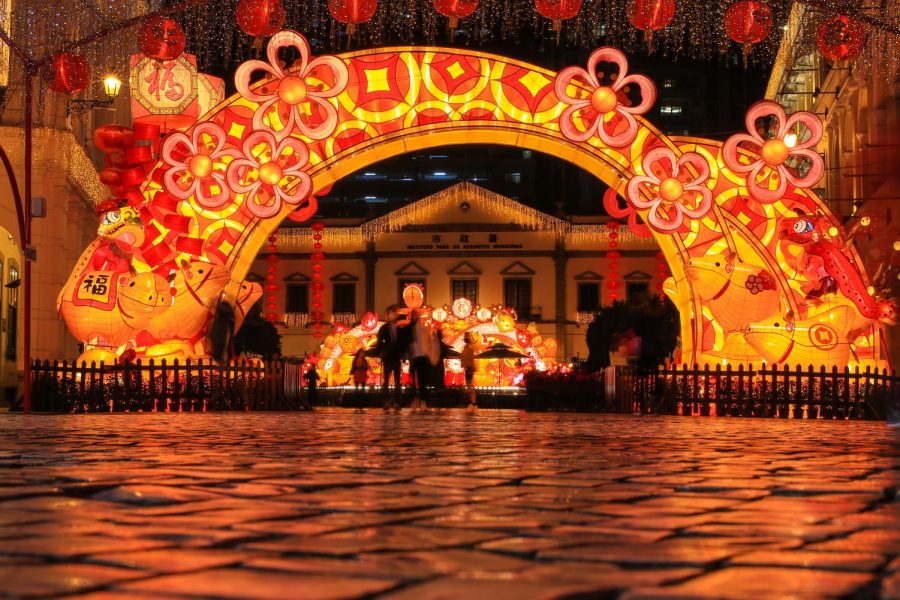Lunar New Year
New Moon, New Year
Macau Photo Agency (Unsplash.com)
The Lunar New Year is a spring festival celebrated all around the world among Asian cultures, but Lunar New Year 2021 might look a little different due to the Covid-19 pandemic.
February 19, 2021
The Eastern Asian countries adopted the Gregorian calendar to use for official and international matters, but follow their lunisolar calendars to chart out the year. Lunisolar calendars indicate dates by using the moon phases; and, figure out the time of the solar year to predict seasonal changes. But, a sidereal year uses constellations during that time to predict the full moon. The calendar every two or three years will add a thirteenth month which is considered a leap month; instead of the western calendar’s leap year where we add an extra day to the month of February. By using the lunisolar calendar, the Eastern Asian countries celebrate the New Year that begins on the first or second new moon following the winter solstice.
“I have been celebrating lunar New Years all my life,” says San Pasqual student Erika Sourinphoumy. “The new year signifies a cleanse of the bad that happened in the last year, and the start of a good and healthy year.” The new year is a new beginning to push all the bad into the past, and move into the future with high hopes of a good, beneficial year.
With the start of the new year comes many celebrations within the cultures. But, not every culture will celebrate the same way. For example, the Mongolians on the eve of Lunar New Year, Bituun, gather with their families to have dinner with the elders telling stories of myth and folktales. Then, on the first day of the new year they dress in new traditional wear, and thank Mother nature for the gifts she bestows. Adults and children greet the eldest members of their community, and join each other in a feast.
“For the Vietnamese people, we usually have festivals, and big ones are located in Santa Ana. In those festivals there are many vendors selling food, drinks, toys for children, fashion competitions, and performances,” says Sourinphoumy. She explains how she celebrates the Lunar New Year as a Vietnamese in the U.S.. Many celebrations differ depending on which cultures, and personal households are being looked at; but, all are unique and special to those celebrating.
The Lunar New Year is celebrated among Asian cultures with big festivals all around the world. But, they have been affected by Covid-19 just like the rest of the globe. Covid-19 travel restrictions have impacted around 3 billion trips that would have been taken for the celebrations.It has also cancelled the major celebrations for the new year.
“This year was different because of Covid. We decided not to go to the temples and decided to stay home, pray, and take photos in our traditional wear,” says Sourinphoumy.
The new year is usually celebrated with big gatherings, but Covid-19 has brought that to a stand-still as many don’t want to be caught in crowds where Covid-19 can be easily spread. Despite the ongoing threat of Covid-19, many were still able to celebrate the New Year, the year of the Ox.



